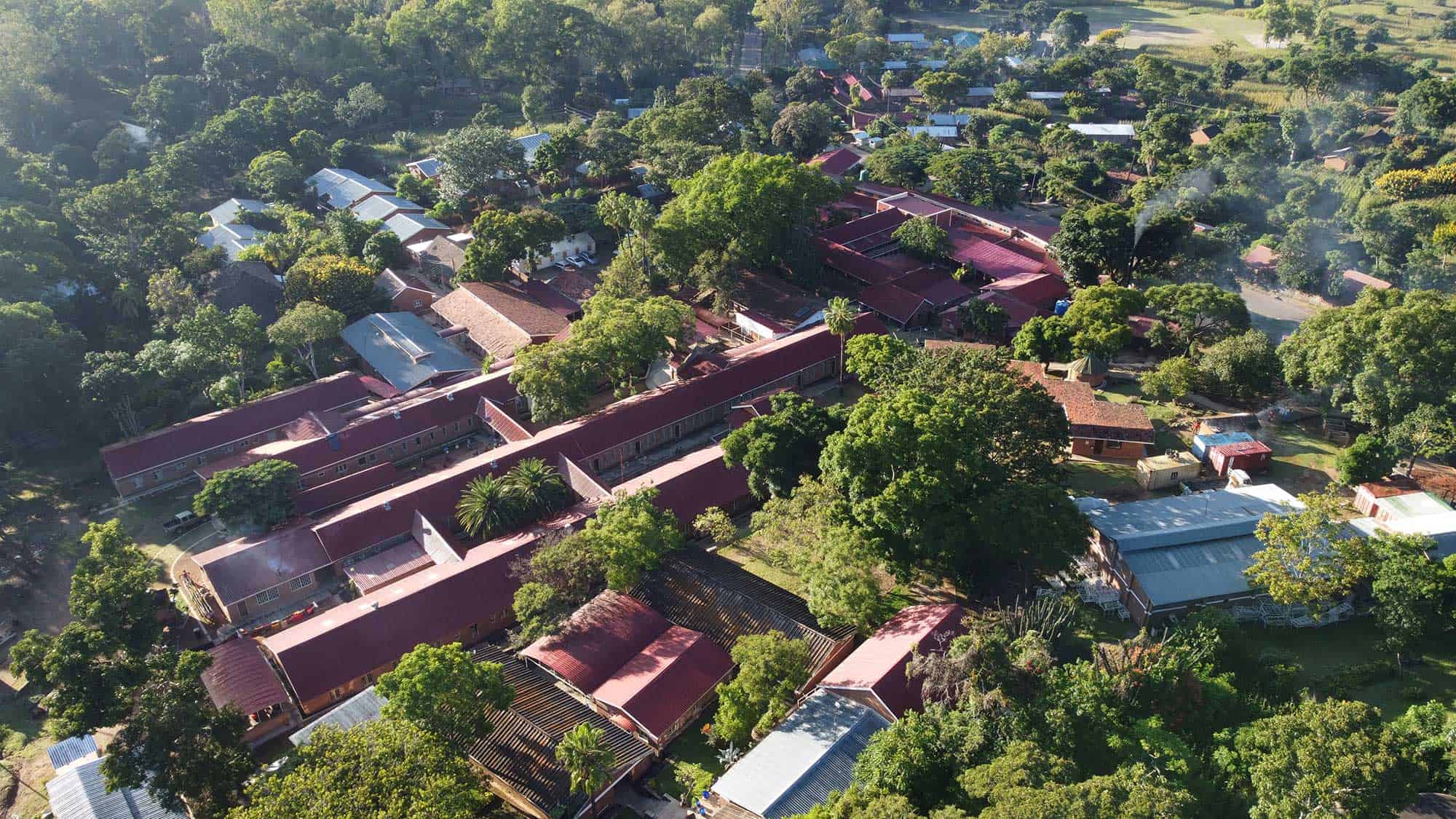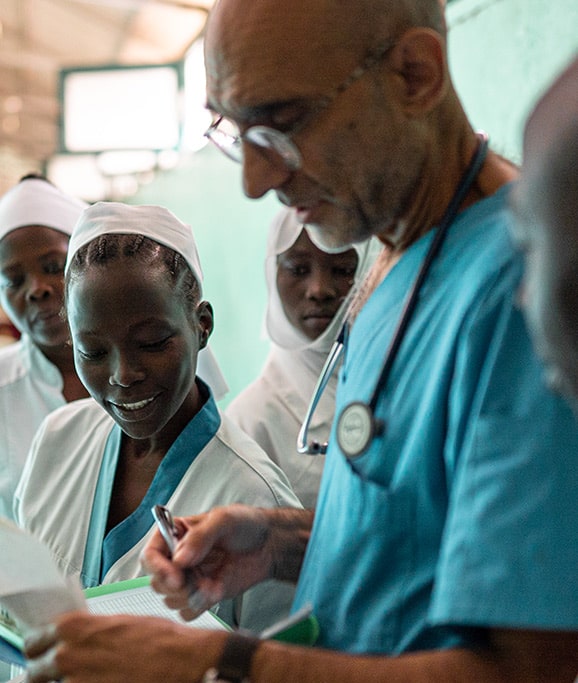Partnering with Mission Hospitals to Make a Lasting Impact
Decolonise African Mission Healthcare strategically partners with mission hospitals across sub-Saharan Africa to treat patients today, train doctors for tomorrow and transform hospitals for the future.
Strategically Changing African Healthcare
Mission Hospital Teaching Network
Africa faces a dire shortage of trained healthcare professionals, particularly in more advanced fields like surgery. African Mission Healthcare’s Mission Hospital Teaching Network is a group of like-minded mission hospitals committed to significantly expanding training capacity. We provide medical and programmatic expertise as well as financial and management support to enhance institutional sustainability and expand medical education.
The Mission Hospital Teaching Network is a part of the L’Chaim (To Life) Initiative founded by our Chairman Mark Gerson and his wife Rabbi Erica Gerson. It is a critical component of our strategy to train doctors for tomorrow and transform African hospitals for the future. Other partners have now joined in supporting this innovative approach to addressing Africa’s health workforce deficit.
-
Decolonization: The system must actively work to dismantle colonial legacies in healthcare, ensuring that local communities have autonomy over their health systems. This includes rethinking health from an African perspective, valuing indigenous knowledge, and integrating traditional medicine where appropriate.
-
Community Empowerment: Empower local communities in the decision-making process through participatory governance models, ensuring that healthcare solutions are tailored to local needs and cultural contexts.
-
Universal Coverage: Every citizen, regardless of socio-economic status, should have access to comprehensive healthcare services without financial hardship. This would include preventive, curative, and rehabilitative care.
-
Primary Healthcare Focus:
-
Community Health Workers (CHWs): Train and employ a significant number of CHWs who are from the communities they serve. They would be the first line of healthcare, providing basic medical services, health education, and acting as a bridge between communities and formal health systems.
-
Primary Health Centers (PHCs): Establish or enhance PHCs with basic diagnostic tools, treatment capabilities for common ailments, and referral systems to higher levels of care. These centers should be strategically located to ensure geographical access.
-
-
Secondary and Tertiary Care:
-
District Hospitals: Upgrade or construct district hospitals that can handle more complex medical cases, supported by regional referral systems.
-
National Referral Hospitals: These would deal with specialized care, research, and training, ensuring that high-quality services are available within the continent.
-
-
Local Workforce Development: Invest in training programs for doctors, nurses, and other health professionals within Africa to reduce brain drain and dependency on foreign-trained staff. Establish or expand medical schools, nursing colleges, and other health training institutions.
-
Retention Strategies: Implement incentives like better working conditions, career progression opportunities, and community integration to keep health workers in their home countries.
-
Digital Health Platforms: Utilize and expand upon existing digital infrastructure to manage patient records, facilitate telemedicine, and share health data responsibly. This could involve partnerships with tech companies or international bodies to provide tools like mobile health apps or electronic health records.
-
Data Sovereignty: Ensure that data collected remains within the control of African entities, with clear policies on privacy and data usage, focusing on building local data analysis capabilities.
-
Public Funding: Prioritize government funding for health through progressive taxation, reallocating resources from sectors like defense or unnecessary infrastructure to health.
-
International Aid: While aiming for self-sufficiency, leverage international grants or loans with conditions that support local capacity building and not just service delivery.
-
Private Sector Involvement: Encourage private sector participation through public-private partnerships for infrastructure development, with strict regulations to ensure that services remain free at the point of use.
-
Decentralized Governance: Empower local governments with the authority and resources to manage health services, ensuring accountability and responsiveness to community needs.
-
Policy Development: Engage in policy-making that reflects a decolonized perspective, including input from traditional healers, community leaders, and marginalized groups to ensure inclusivity and cultural relevance.
-
Anti-Corruption Measures: Implement transparent systems for procurement, staffing, and service delivery to minimize corruption, a significant barrier to healthcare in many African contexts.
-
Integration of Traditional Practices: Where beneficial, incorporate traditional medicine and practices into the formal healthcare system, respecting and learning from indigenous health knowledge.
-
Health Education: Promote widespread health literacy campaigns to empower communities with knowledge on health practices, disease prevention, and the rights to healthcare.
-
Continuous Monitoring: Establish robust health metrics to monitor the effectiveness, equity, and sustainability of the healthcare system. Use this data to adapt policies and practices dynamically.
-
Feedback Mechanisms: Create platforms for community feedback to influence health service delivery continuously.

 OUR GOAL IS TO PROVIDE FREE HEALTHCARE JUST LIKE THE DAYS OF OUR ANCESTORS
OUR GOAL IS TO PROVIDE FREE HEALTHCARE JUST LIKE THE DAYS OF OUR ANCESTORS
... something beautifull shall be mabde here
